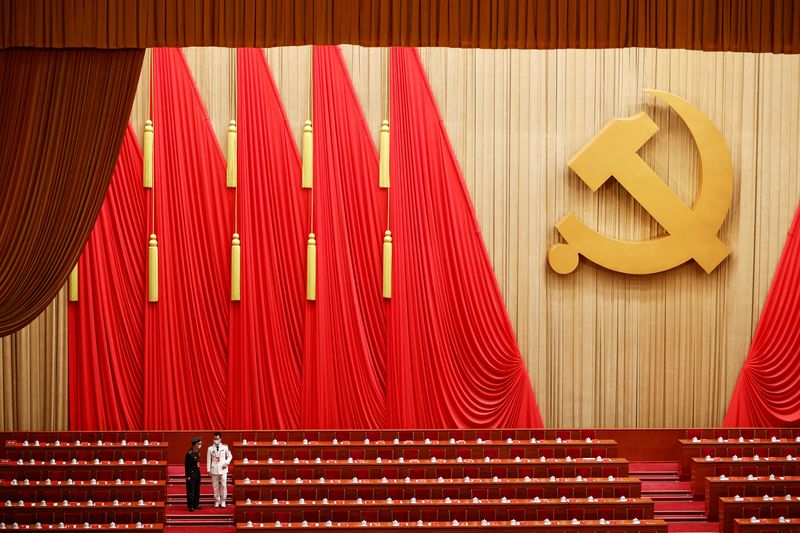(Reuters) - China's 20th Communist Party Congress began on Sunday, with Xi Jinping poised to clinch his third five-year stint in charge - a mandate that would secure him as the country's most powerful ruler since founding leader Mao Zedong.
* Xi opened the week-long, twice-a-decade session with a speech touting China's fight against COVID-19, the party's safeguarding of national security, maintaining social stability, protecting people's lives and taking control of the situation in Hong Kong, which was rocked by anti-government protests in 2019. He also called for accelerating the building of a world-class military.
* In the work report from which his speech was drawn, Xi used the terms "security" or "safety" 89 times, up from 55 times in 2017, according to a Reuters count, while his use of the word "reform" declined to 48 from 68 mentions five years ago.
* To prolonged applause, Xi said it was up to the Chinese people to resolve the Taiwan issue and China would never renounce the right to use force but will strive for a peaceful resolution. Taiwan, which China views as its own territory, responded that it will not back down on its sovereignty or compromise on freedom and democracy.
* China will enact policies to boost its birth rate, Xi said, as policymakers worry that an imminent decline in China's population could hurt the world's second-biggest economy.
* Former Vice Premier Zhang Gaoli made his first public appearance since Chinese tennis star Peng Shuai accused him of sexual assault last year, attending the party Congress. He has made no public comment on the accusation, which Peng posted on social media in November but later denied having made.
* China will make its COVID-19 prevention measures more scientific, accurate and effective, a party spokesman said on Saturday, while reiterating Beijing's stance that its pandemic approach is the right one.
* Little is known about who will be promoted into which key roles on the Politburo and its seven-member Standing Committee. Here are some of the leading contenders and some scenarios to look out for.
* Leaders face a difficult time. The world's second-largest economy is slowing and facing a potentially painful rebalancing of its investment- and property-led model.
* China's real estate developers are delaying debt restructuring moves until after the congress, hoping the gathering offers clues on how Beijing plans to stabilise the embattled sector.

QUOTES
"In the past, Chinese leaders based their legitimacy on their ability to provide economic growth. Now with the economy slowing, Xi tries to shift the basis of legitimacy from economic growth to security - that he can be the one who saves and protects China," said Alfred Wu, Associate Professor, Lee Kuan Yew School of Public Policy, National University of Singapore.